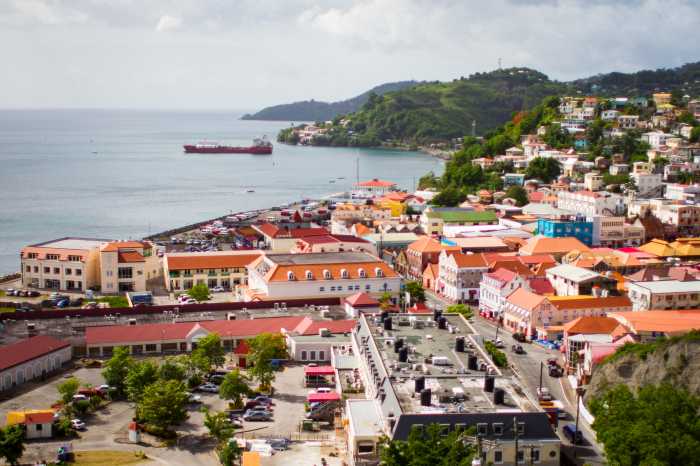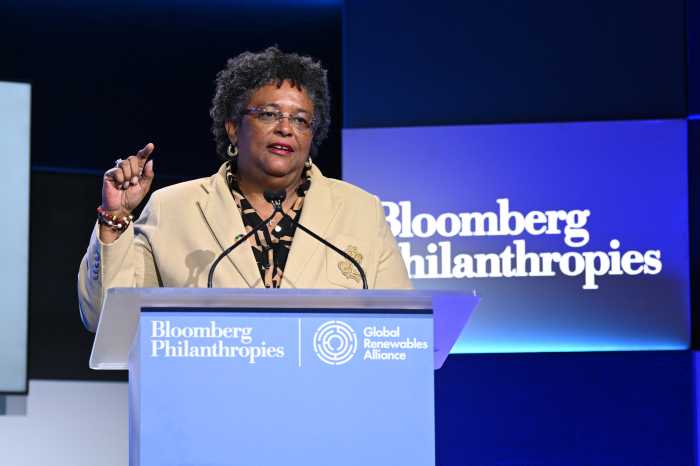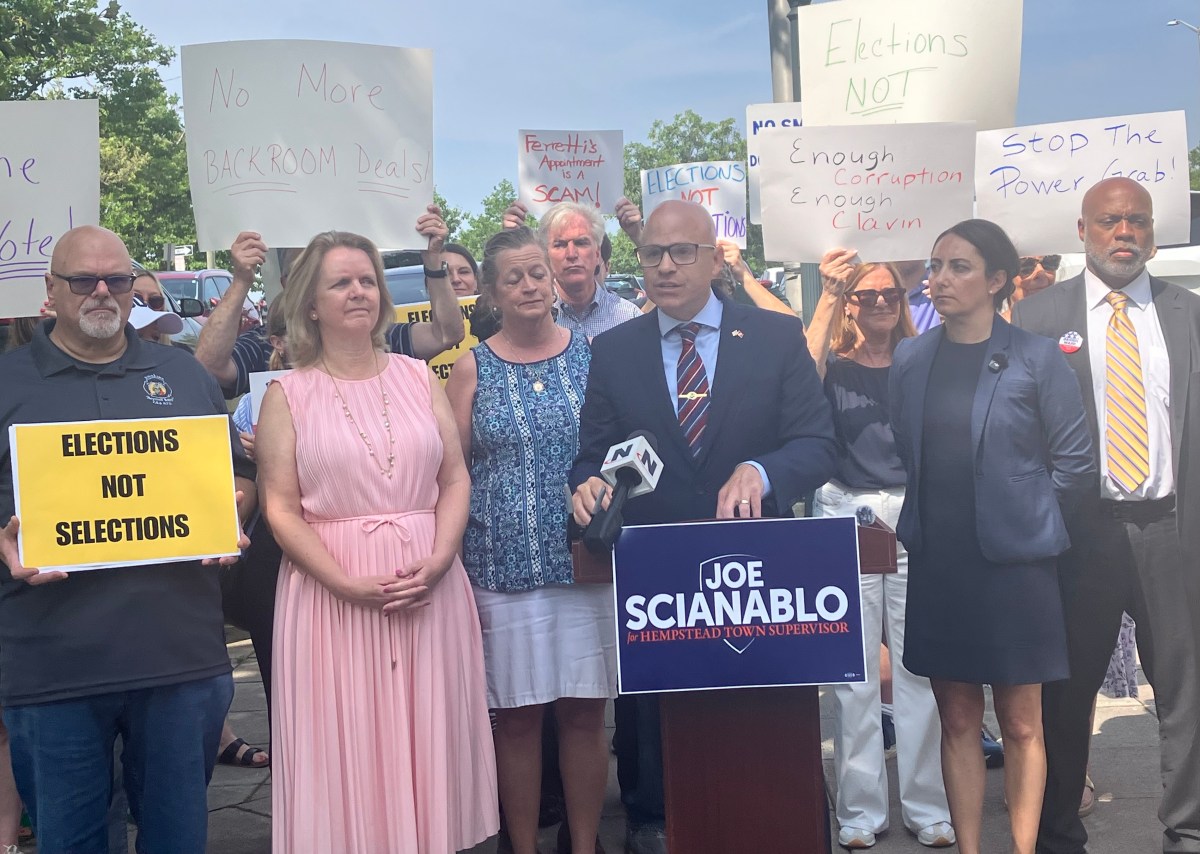Hundreds of Haitian-Americans on Oct. 17 protested a Dominican Republic court ruling stripping people of Haitian descent of Dominican citizenship.
The protest rally, organized by the Brooklyn-based Haitian Diaspora for Civic and Human Rights (HDRHR), in coalition with other civic organizations, was held in front of the Consulate General of the Dominican Republic in midtown Manhattan.
Dozens of Dominicans also joined the protest, demanding that the Dominican Republic’s constitutional court reverse its ruling.
“These people were born in the Dominican Republic, a lot of them don’t speak Creole and don’t know anyone in Haiti,” HDRHR organizer Barbara Saint-Louis told the rally. “We’re asking for justice.”
Vilaile Charlotte, a Haitian-Dominican living in New York, who has six children living in Santo Domingo, the Dominican Republic capital, said: “It’s not a political situation, it’s a humanitarian situation.”
Edward Paulino, assistant professor of history at John Jay College of Criminal Justice in Manhattan, who is Dominican-American, said the court’s ruling underscores a history of racial prejudice in the Dominican Republic against Haitians and their descendants.
“Dominicans are having to thread that needle: how to love something but also calling attention to its weaknesses,” he said.
“Anything that’s seen as a criticism is seen as treasonous,” he added. “We’re not the first people who have had to grapple with that.”
Analysts say the ruling is expected to primarily affect descendants of Haitian laborers who entered the Dominican Republic to work in the sugar industry.
The ruling has inflamed the historically tense relationship between the two countries that share the island of Hispaniola.
In the wake of the ruling, the Haitian government recalled its ambassador to Santo Domingo.
The Caribbean Community (CARICOM) and some of its leaders, including St. Vincent and the Grenadines’ Prime Minister Dr. Ralph Gonsalves has condemned the ruling.
Gonsalves has even written his Dominican Republic counterpart, Danilo Medina, expressing “personal outrage” over the court’s ruling.
“I regret that the circumstances have compelled me to write robustly on this matter,” Gonsalves said. “I assure you that my language is restrained and does not fully express my personal outrage.
“This court decision, in effect, renders stateless, huge numbers of these persons of Haitian descent,” he added. “Surely, this ruling by the Court is unacceptable in any civilised community.”
Gonsalves further told Medina that the court’s ruling is “an affront to all established international norms and elemental humanity.
“It is subversive of your country’s international human rights obligations as enshrined in several international and hemispheric conventions/treaties to which it is a state party,” he said.
Gonsalves’ comments came after former Jamaica Prime Minister PJ Patterson called on the 15-member Caribbean Community (CARICOM) grouping to strongly condemn the Dominican Republic court’s ruling.
“No one can be hood-winked as to the reason and the purpose for this kind of discriminatory legislation,” Patterson said.
“Within the region we have an obligation to speak, and we cannot allow such inequities to go without our strongest condemnations,” he added.
Patterson was a major player in efforts to integrate Haiti into the regional integration movement.
Haiti is a full member of CARICOM, while the Dominican Republic has observer status. The latter has been cooperating with CARICOM, since 1992, through the Caribbean Forum (CARIFORUM), an economic pact involving the Caribbean Community, the Dominican Republic and the European Union.
Earlier, CARICOM Secretary General Irwin La Rocque said the court’s ruling “raises a serious question” about the status of numerous Dominicans of Haitian descent.
The Geneva-based office of the United Nations High Commissioner for Human Rights has called on authorities in the Dominican Republic to ensure that the ruling did not leave persons of Haitian descent in “constitutional limbo”.
A United Nations-supported study, released this year, estimated that there were about 210,000 Dominican-born people of Haitian descent and another 34,000 born to parents of other nationalities.

















